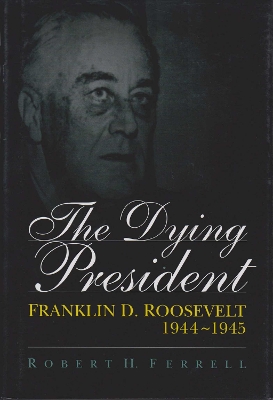In this account, the author shows that the treatment of President Franklin D. Roosevelt's illnesses in 1944-1945 was managed by none other than the President himself. Although this powerful American president knew that he suffered from cardiovascular disease, he went to great lengths to hide the fact - both from his physician and from the public. Why Roosevelt disguised the nature of his illness may be impossible to discern fully. He was a secretive man who liked to assign only parts of tasks to his assistants so that he, the president would be the only one to know the whole story. The president's duplicity, though not easily measurable, had a critical impact upon his performance. Placed on a four-hour-a-day schedule by his physicians, Roosevelt could apply very little time to his presidential duties. He took long vacations in South Carolina, Warm Springs, the Catocin mountains and Hyde Park as well as lengthy journeys to Hawaii, Canada and Yalta. Important decisions were delayed or poorly made. America's previous policy toward Germany was temporarily abandoned in favour of the so-called Morgenthau Plan, which proposed the ""pastoralization"" of Germany, turning the industrial heart of Europe into farmland. Roosevelt nearly ruined the choice of Senator Harry S. Truman as his running mate in 1944 by wavering in the days prior to the party's national convention, He negotiated an agreement with Winston Churchill on sharing postwar development of nuclear weapons, but failed to let the State Department know. And, in perhaps the most profoundly unwise decision, Roosevelt accepted a fourth term when he knew that he could not possibly survive it. Reading like a mystery story, this book clears up many of the myths and misunderstandings that have surrounded Roosevelt's final year.
- ISBN13 9780826211712
- Publish Date 3 April 1998
- Publish Status Active
- Publish Country US
- Imprint University of Missouri Press
- Format Hardcover
- Pages 208
- Language English
